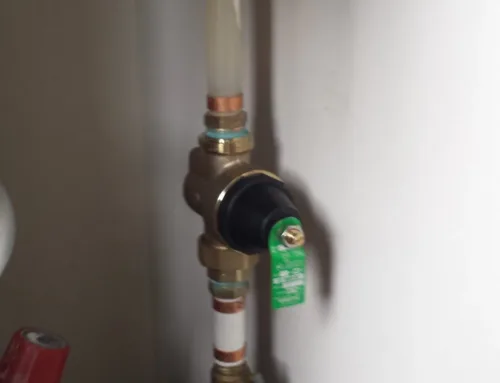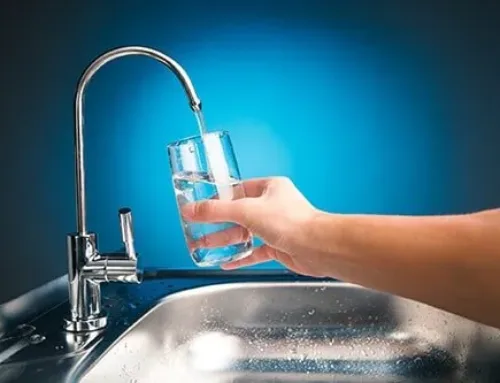Many of us purchase a product with the idea that it will last forever in the exact state in which we purchase it. Then after using it happily for a while we begin to have issues and problems. It doesn’t work exactly like it did when it was new. It tends to have minor breakdowns. We then become dissatisfied with the product and chalk it up to either it is a lemon or a piece of junk.
In reality, it may be that it needed to be maintained. Granted, some products are of a more disposable nature, and you would expect to “use them up” and then “throw them away,” and get a new one, like disposable razors. However other products could work well for many many years if they were maintained properly. They could give us many years of faithful service, such as an electric razor. One is meant to be disposable, the other is meant for long term.
Other items like electronics, such as an iPhone are designed well and are meant for longterm service, if it wasn’t for the fact that technology changes every 8 months and it becomes out of date. If it is not out of date, the newer version will be bigger, faster, and have more capabilities and we just feel like we need to keep up with the Jones’s and get the latest and greatest.
Your water softener fits into these same categories. There are some systems which are cheap, cost wise and quality wise, and are not designed for years of work and service. Others are designed extremely well and will last 10 – 15 or more years if we simply maintain them. All water softeners use the same basic principle of operation, that is they have a cation exchange resin, a tank to hold the resin, a control valve to actuate the regeneration of the unit, and a regenerant tank to hold the salt or potassium in. Thats it.
The differences come in as to what type and quality of resin are you using. Are you using a cheap imported resin from either China or India, or are you using a high quality resin manufactured in the USA or Germany that is NSF (National Sanitation Foundation) certified? Cheap resins will give off chemicals as they are used. They may also give a color throw, which means when the resin sits in water, without water movement thought the tank, it will give off an amber or brownish color once the water is turned on and flowing again giving you tea colored water at the faucet. Such as when your on vacation and return home. If the resin is NSF certified this means that it has passed exacting manufacturing standards and has passed an extraction test certifying no contaminants are getting into the water from the product itself.
A high quality unit will also have a control valve on it that is made of an ABS thermo plastic versus the cheap white plastics. This will give the control valve longevity and durability to handle the hard conditions of the water and perform thousands of regenerations in its lifetime. The internal components of the control valve should also be made of material that is durable and resistant as water is continually passing through these internal parts. The control valve will determine the efficiency of the softening unit as well as play a factor in flow rates and in tracking the performance of your water softener. As with resin, look for the NSF seal, or the WQA seal on the valve. This will mean it meets the high standards of these third party verifying organizations.
The other components to a water softener are important but are more inert to the operation of a good high quality water softener. So, now that we have a quality softener, why do we then have to maintain it? Let use the example of two cars. You have a Chevy Cavalier, that you drive to work in, and parked in the garage you have a Ferrari 458 which you drive on weekends on a secluded road in the middle of no where so you can open up the throttle. Which one is it more important to change the oil on, and change the transmission fluid on, and flush the radiator on, and change the wiper blades on? Both! You depend on one to get to work with and the other for pure entertainment. But both require regular maintenance to perform their best and be reliable when you need them.
Your water softener has injectors, injector screen, drain line flow controls, brine line flow controls, meter assemblies, safety float assemblies. programming, that all need to be cleaned and replaced periodically. The resin requires a resin treatment yearly to ensure the resin does not become fouled or overloaded with minerals. The internal ports of the control valve need to be chemically cleaned to prevent mineral build up and clogging. The float should be checked periodically to make sure it isn’t jammed with salts and debris which could cause an overflow causing serious damage. The brine line as well as the drain line need to be check for brittleness which is caused by the salt moving through the tubing which may cause them to split and flood as well. The salt tanks of the water softener tends to build salt bridges in them which will prevent the unit from regenerating and cause hard water to breakthrough and cause hardness problems. Also periodically the water needs to be tested to make sure the softener is still set properly for the incoming raw water and adjustments made to make sure your softener is fine tuned to do its job.
Properly maintaining your water softener is important. It will make your unit last longer and be as efficient as it can and hopefully prevent needful and unwelcome breakdowns which could be costlier than maintaining your softener. Many people go years without doing anything to their softener and provide the excuse that its done ok so far, why should I spend the money when I don’t need to. Well, just like your car, you may go a longtime without changing the oil and its fluids, but it will only be a matter of time before serious damage is done and it breaks down. The question is, are you ready for a large expenditure right then, or would a small amount have been more convenient at that moment.
People who have learned to simply maintain an object tend to have less stress and spend less money than those who think its never important. If you feel it is important to maintain your water softener so you can have clean water free from damaging minerals give us a call. We love to maintain them and teach you about your softener and why it is important. Water really is what we make it. Give us a call at 801-796-0940. We look forward to adding you to our Total Water Family.





Leave A Comment